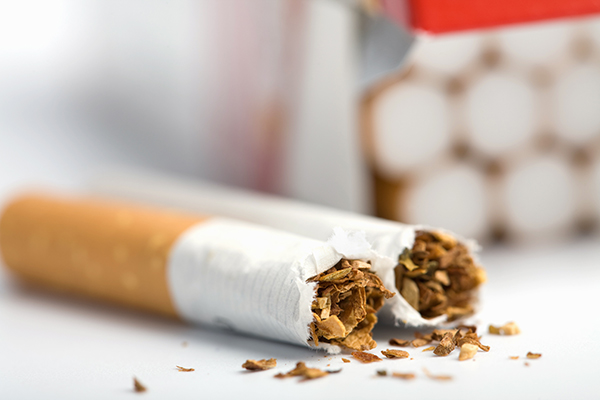Nicotine is a very addictive toxic oily liquid that is the main ingredient of tobacco; it is also in many commercial insecticides. Nicotine is a stimulant in small doses; however, it blocks both the skeletal muscle cells and autonomic nerve in large amounts.
How Does a Nicotine Work?
When nicotine is absorbed into the bloodstream, it causes adrenaline and dopamine to be released. This stimulates the central nervous system and increases blood pressure, heart rate, and breathing rate. Nicotine is found in:
- Cigarettes
- Cigars
- E-Cigarettes
- Clove and Bidi Cigarettes
- Hookahs
According to the CDC:
Tobacco is the leading cause of preventable disease, disability, and death in the United States. The statistics say that 40 million US adults and nearly 4.7 million students, middle and high school age use at least one tobacco product. (Centers for Disease Control)
Is nicotine a gateway drug? Let’s discuss this in the next section.
How Can Nicotine Be a Gateway Drug?
A gateway drug is a mild habit-forming drug that can lead to other harder, more addictive drugs. There has been talking of whether gateway drugs exist and if nicotine is a gateway drug? However, there is research that suggests nicotine, alcohol, and marijuana are all gateway drugs, especially when they are started at a young age and while the brain is still developing.
More About Gateway Drug Theory
Nicotine, alcohol, and marijuana all increase levels of dopamine in the brain, which causes pleasure. This dopamine boost causes the brain to release less dopamine as time goes on, leading people to seek harder and more addictive drugs. This is known as the gateway drug theory. Gateway drugs have been discussed for years. Years ago, marijuana was considered the number one gateway drug, and then nicotine came into the picture. The truth is nicotine is a powerful stimulant, and as stated above, it does affect the dopamine neurotransmitters in the brain. In addition, their risk factors come into play when discussing addiction: a history of mental illness, environment, genetics, social life, and the history of abuse.
Why Nicotine is a Gateway Drug?
However, take these risk factors with the use of nicotine, alcohol, or marijuana, started during the teen years, and you have the perfect combination for the development of an addiction to harder drugs. The National Institute of Health says:
A new study in mice shows how tobacco products could act as gateway drugs, opening the door to the use of illicit drugs. Nicotine, the researchers found, makes the brain more susceptible to cocaine addiction. The finding suggests that lowering smoking rates in young people might help reduce cocaine abuse. Scientists have long recognized that cigarettes and alcohol raise the risk for later use of illicit drugs like marijuana and cocaine. In a recent national survey, over 90% of adult cocaine users between the ages of 18 and 34 had smoked cigarettes before they began using cocaine. Researchers suspected that nicotine exposure might increase vulnerability to cocaine.(NIH)
Professional Treatment for Misuse of Gateway Drug
If you or someone you love struggles with an addiction to any drugs, our addiction specialists are available around the clock to assist you. Evoke Wellness assists men, women, and families throughout the United States who struggle with substance abuse and are searching for drug addiction treatment. We offer a variety of addiction treatment programs such as medical detox, dual diagnosis, and residential treatment. There is a program for everyone to help them get on the road to their long-lasting recovery. You don’t have to suffer any longer. It is time you give us a call so one of our addiction specialists can help you on the path to a happy and healthier lifestyle, free from addiction.



